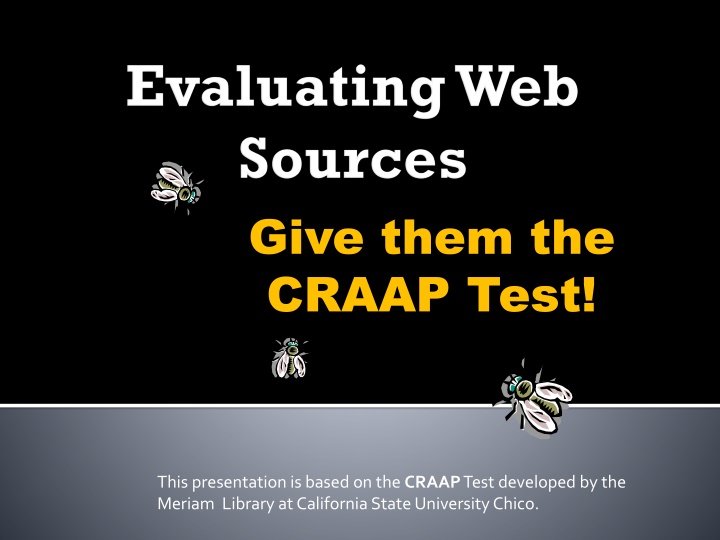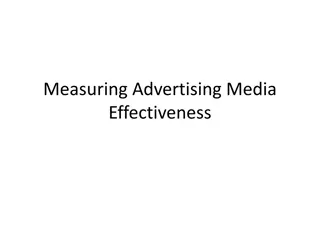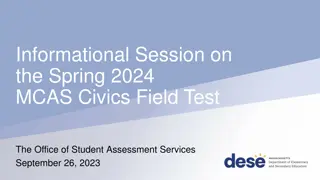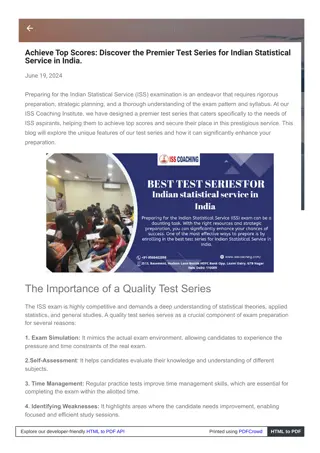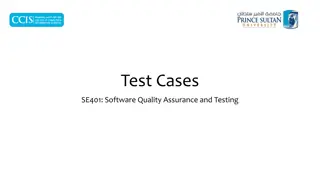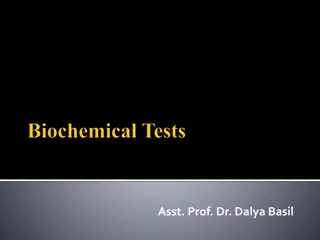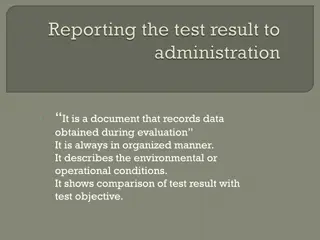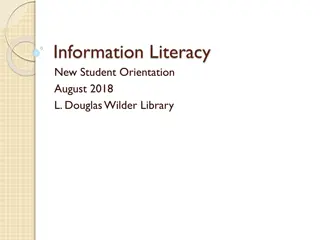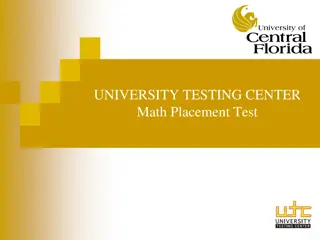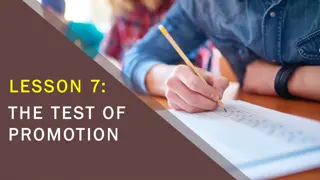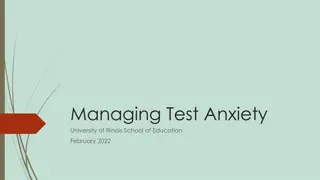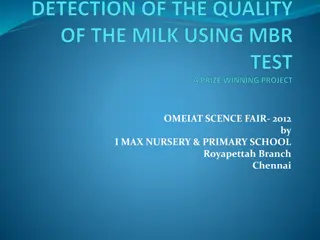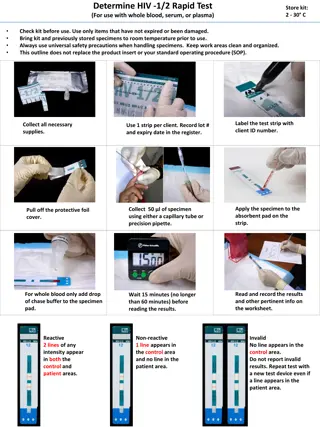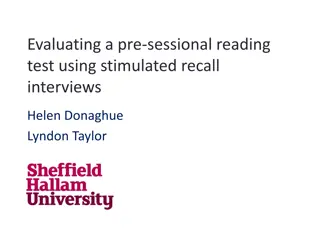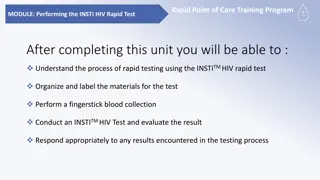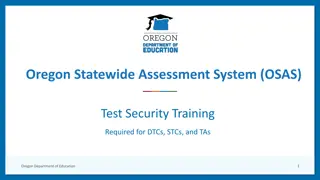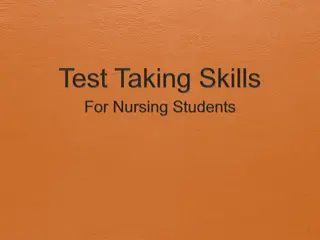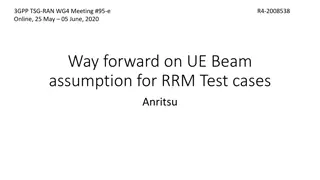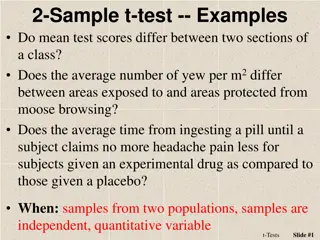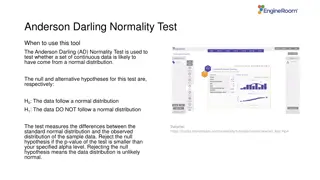Mastering the CRAAP Test for Evaluating Information Online
Understand the importance of evaluating online information using the CRAAP Test. Developed by the Meriam Library at California State University Chico, this test focuses on Currency, Relevance, Authority, Accuracy, and Purpose. Learn to assess the timeliness, reliability, and relevance of sources to make informed decisions when researching online.
Download Presentation

Please find below an Image/Link to download the presentation.
The content on the website is provided AS IS for your information and personal use only. It may not be sold, licensed, or shared on other websites without obtaining consent from the author.If you encounter any issues during the download, it is possible that the publisher has removed the file from their server.
You are allowed to download the files provided on this website for personal or commercial use, subject to the condition that they are used lawfully. All files are the property of their respective owners.
The content on the website is provided AS IS for your information and personal use only. It may not be sold, licensed, or shared on other websites without obtaining consent from the author.
E N D
Presentation Transcript
Give them the CRAAP Test! This presentation is based on the CRAAP Test developed by the Meriam Library at California State University Chico.
Just because its written doesnt mean it s good Well, I m not too picky!
Today, anyone who has the necessary skills can find a lot of information on almost any topic. So easy a fly can do it!
The challenge is to sift through a huge amount of information and identify sources that are reliable and appropriate.
Whether you find information in books and periodicals, on the Internet, or on television, you cannot assume it is reliable. But can I eat it?
The researcher is responsible for evaluating information and judging its quality.
You can use a system called the CRAAP CRAAP Test Test to help you evaluate websites. Now that s my kind of test!
C C = Currency R R = Relevance A A = Author A A = Accuracy P P = Purpose
Currency: The timeliness of the Currency: The timeliness of the web page. web page. When was the information gathered? When was it posted? When was it last revised?
Currency: The timeliness of the Currency: The timeliness of the web page. web page. Are links functional and up-to-date? Is there evidence of newly added information, updates or links?
How important is Currency? In fields such as medicine, science, business, technology, and most social sciences, currency of information is important important. (no older than 3 years!) is
Sometimes Currency is not all that important. In fields such as history and literature, older materials may be just as valuable as newer ones.
When evaluating a website, determine whether it is important to use current sources sources for the subject. current
Relevance = How effectively the website communicates the information to its intended audience.
Who is the intended audience? Would this site be of greatest interest to the general user, the enthusiast, or the professional?
What does the website assume about the audience in terms of their knowledgeof and familiarity with the topic? Does the website take for granted that the audience will believe or buy into the information without any doubt? Dogs are evil! Well duh
Is enough information presented for the audience to understand the topic? Is the information unique?
Is the information available elsewhere such as an online news source? Could the same information be found in a simpler source, such as an encyclopedia or dictionary? I wasted all that time on that website when the info was right here!
Look at the web address first the address can tell you lots about the source
The address holds information about the author! .edu = college/university .gov = U.S. government site .com = commercial site .org = Organization/group .mil = U.S. military site .net = network of computers .k12.us = public school
The best sites for reliable information are: .edu .gov .mil .k12.us However, these are not without problems students and professors may have personal web pages on the university website, so be sure to read them critically.
If you cannot find anyones NAME on the website, that s a big RED FLAG
Sometimes questionable internet sources do not give the identity or credentials of the author or producer.
If you have a source with NO NAME or NO CORRESPONDING ORGANIZATION, do not use use that source! do not No way am I putting my name on THAT!!
Identify theauthor(s) A PERSON An ORGANIZATION
A PERSON What are his/her credentials? Does he/she have sufficient expertise to speak on the subject? Author's occupation / position? Author s education? Author s affiliation with a known institution or organization?
An ORGANIZATION Who are the leaders? What is the mission of the organization? Is it a national or international institution? What is its membership? Is it endorsed by or affiliated with other organizations? Does it have a parent organization?
An ORGANIZATION Check the organization's home page to make sure it has a postal address and phone number available phone number available. If it does not, the site is probably not a credible source. postal address Look for any product advertising on the site ads can reveal what s important to the organization
.org can be tricky Most organizations have a purpose or mission, and this means they may present a biased view. http://t2.gstatic.com/images?q=tbn:K57OiAbPwfUjLM:http://api.ning.com/files/MpyQJmlU6OiOwI*Jizc-C*rR8FCNr--v9OOh-yrTJQ3GjBsVQUH2hB8PiLNOHtVIRwS6vmrOvuegZyuObqhjTmH4yeHSxr5e/GO_Vegetarian_by_metalangel18.jpg
.org can be tricky For example: The Beef Industry (www.beef.org) is an organization made up of people in the meat industry. The Vegetarian Society (www.vegsoc.org) is an organization promoting vegetarianism. Both are legitimate .org sites, but they present very different views about meat.
.org can be tricky Not all .org sites are reliable! Many helpful organizations and charities with good intentions have .org addresses, but some organizations promote prejudice, criminal activity, or harmful behavior. Yikes!
How to verify an author: How to verify an author: Look at the source to see if it tells you anything about the author's credentials. About us About the author Author Bio Mission Statement Who we are
How to verify an author: How to verify an author: Use a search engine (such as Google or Yahoo) to find information about the author(s) Do a Who is search at www.whois.net to determine the website s registered domain
Accuracy: Accuracy: The truthfulness truthfulness, and the informational content. the informational content. The reliability reliability, , , and correctness correctness of of Scary.
Where does the information come from? Did the author conduct an experiment? Is the author reporting his/her observations? Does the site rely on expert testimony?
Does the author support his or her statements with data or works cited? Are any original sources of information listed?
Look at the LINKS on the site What kinds of links are listed? Are the links relevant and appropriate for the site? Do the links go to internal pages on the same site or to other websites?
Are there spelling, grammar, or other typographical errors errors? Can you verify verify any of the information in independent sources or from your own knowledge?
Can you find any cases where the author has plagiarized other sources? In other words, has the author used other authors' words or ideas without properly citing them, so as to pass them off as original ideas?
Purpose: Purpose: Why created: created: To inform inform? To promote promote an ideology? To enlighten? Why the site was the site was
Informational websites present verifiable information without bias The best informational websites have a neutral tone Information can include: facts expert opinions statistics case studies experiment results
Look for bias/opinion Bias is not a negative term it simply means that one has a certain perspective or point of view
Look for bias/opinion Are possible biases clearly stated? Are editorials clearly labeled? Is the purpose of the page stated? Are strong words used, such as murder to describe eating meat?
Is the tone critical, etc.) and writing style of the source appropriate for the purpose and audience? tone(whether serious, humorous,
